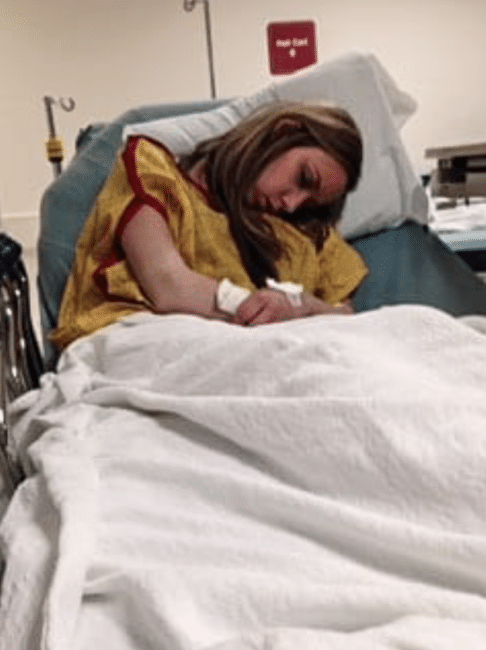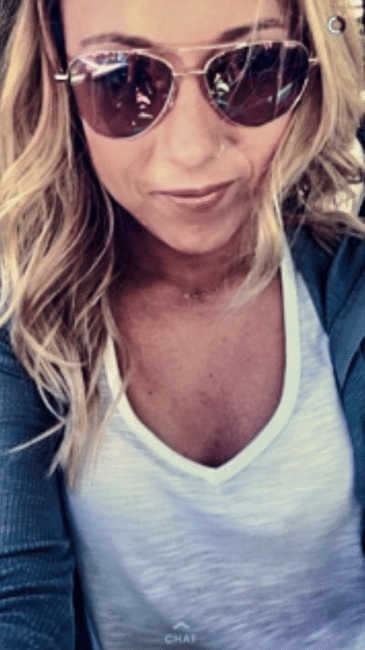Read about Katie’s experience with her daughter’s addiction, beginning with Rx pills and degrading to heroin. Learn how she and her daughter overcame.
Several years ago, Katie Donovan was planning her daughter’s funeral. Now the two of them work together in the addiction treatment field.
Just the Beginning
The color drained from Katie’s face when she saw that the hospital was calling. A lump building in her throat, she picked up the phone.
Katie’s 17-year-old daughter had landed in the emergency room. Young Brittany had flipped her truck while driving under the influence of Xanax. This marked the moment that Katie realized her daughter was abusing drugs, but sadly, it was only the beginning of the Donovan family’s troubles.
The following year, a worse nightmare emerged: Brittany was addicted to heroin.
It quickly became apparent to Katie that her daughter’s life was a wreck. When Brittany wasn’t in jail or living in a drug house, she was homeless. On two occasions, the young woman was raped. She suffered drug-induced seizures and overdosed three times. Her addiction caused her to lie to her dearest friends and steal from her own family.
Whoever this person was, it wasn’t Brittany. Xanax abuse and heroin addiction had taken control over the girl who used to be Katie’s sweet young daughter.

When she first discovered her daughter’s addiction, Katie was numb.
How Could This Have Happened?
“My heart went into my throat and I was just so confused,” Katie recalls.
In retrospect, she realizes that there were many early signs that pointed to her daughter’s drug addiction — she had simply chalked them up to normal teenage experimentation.
But as the woeful signs piled up, and Brittany’s appearance and behavior continued to plunge into destruction, Katie knew something had gone terribly wrong. She was the mother of an addict and didn’t know how to help her child.
“Imagine the feeling you get when you find out that someone you love has been in a car accident and has been rushed to the hospital. You go into a panic where you can’t even breathe. You don’t know if they’re alive or dead. That’s the feeling that the parent of an addict feels every minute of every day.”
Several times, Brittany admitted to her family that she needed help. Each time, she retracted those statements.
The disease of addiction was strong enough to keep her mind bound in its clutches, even when her heart longed for recovery. For seven years, Katie’s daughter cycled in and out of drug rehab, never staying sober for more than 90 days at a time. She tallied 17 stays in various treatment centers and was diagnosed with countless co-occurring disorders, including borderline personality disorder, anxiety disorder and bipolar disorder. To this day, Katie isn’t sure if they were true mental illnesses or further consequences of addiction.
“Being the parent of an addict means living in a constant state of anxiety, fear, anger, resentment. Just about every emotion that you can imagine.”
Katie could not comprehend how her daughter had gotten into this situation. After all, the Donovans were good people. Good parents. They loved their children. They taught them to be respectful, honest, responsible and hardworking. How could this have happened?
“I was losing it, as a person,” says Katie. “When your child is addicted but you’re also taking care of the rest of your family and working, you just feel like you’re being pulled in a gazillion different directions.”
Katie and her husband constantly fought over what was best for Brittany, and their younger daughter wanted nothing to do with her sister anymore.
The entire family fell into chaos and despair.
The Meltdown
About six years into the addiction, when Brittany was living in on the streets in Florida, Katie’s husband called one day with one simple request — something so insignificant that Katie does not even remember what it was. To both their surprises, Katie totally flipped out. “I think I literally went crazy,” she says. “It was a total, total meltdown. I just remember screaming, ‘I can’t do this anymore, I can’t take it anymore.’” Katie left the house, got in her car and just drove in the pouring rain. She wanted to clear the fog in her own head and escape the gripping feeling of despair. She stopped at a red light and glanced down at her feet, noticing she still had her slippers on. That’s when it dawned on her.
“That’s when I really, truly realized, ‘I have to work on me now.’”
She started attending support group meetings — something she had previously rebuffed when friends and family suggested it. “People had recommended support groups to me before,” admits Katie. “But I would brush it off, thinking, ‘I don’t have time for that. I have to save my child.’ Looking back, that was the best advice they could’ve given me. That’s where I finally learned to stop enabling.” As Katie watched her child’s life continue to plummet, she realized that she couldn’t be a savior — Brittany needed to want recovery herself. Katie says, “When I began to create my own boundaries and really got educated on the disease, that was when we started towards recovery together.” Enabling addiction can include everything from denial to covering up your teen’s behavior through lying and even prioritizing your addicted teen’s needs before your own. In the same way, adult flight passengers must don their own oxygen masks before assisting a child, parents need to practice self-care when their teenager is floundering in addiction.
“During those times, as a parent, you don’t sleep. And either you don’t eat or you end up eating too much.”
Deprived of parental enabling, Brittany finally saw that this was a life-or-death situation.
Homeless, alone and in tears, Brittany had nothing left. Her addiction had taken everything.
The End of Enabling
All of Brittany’s friends were gone. She had wounded her parents beyond comprehension and exposed her little sister to things that a child should never have to see. She knew in her heart that this wasn’t her.
Brittany once again came to her mother and said she needed help. Except for this time, she truly poured herself into her recovery. After that final stay in inpatient rehab, she resolved to make different choices than before. She went to support meetings every single day, sometimes twice a day. She got involved with service work and with a nonprofit that fights narcotic addiction. She chose life.
For the first time, she was honest with herself about her situation. She began telling her story at high schools, in hopes of dissuading other young people from following the same destructive path. Katie says, “Sharing publicly about her journey kept her accountable.”
On August 5, 2016, Brittany celebrated 19 months sober.

“We’re just in amazement at our daughter’s recovery. Every day is a blessing. It took her a long, long time to get here. I’m so grateful that she remains sober and dedicated to her program.”
Getting Help
In the beginning, Katie was afraid to talk to addiction counselors about her daughter’s problem. She even feared the judgment of her family doctor. Today, she urges parents to realize that addiction is a medical issue, and not a reflection of parenting or whether a child is “a good kid.”
The best advice she has for other parents? “If you ever found out that, god forbid, your child had some signs of cancer, you’d do everything you could to get the best treatment. But drugs? We curl up in a hole and think, ‘We all experimented. It’s not a big deal.’ However, if you’re seeing signs, they are only going to intensify. Parents need to reach out for help.”
Rehab helped save Brittany’s life. Today, Katie and her daughter work together on their popular blog, which chronicles their family’s struggles. Both mother and daughter continue to advocate for recovery and help others however they can.
Q: For you as a parent, what was the toughest part about Brittany’s addiction?
Seeing her pain, her struggle. She desperately wanted to stop but it was so very hard for her. It was such a mental obsession. Seeing friends and family turn their backs on her really killed me. Seeing her lose friends to the disease, experiencing such enormous pain.
Never knowing if she was alive or dead. Not sleeping at night, just all of it. I wouldn’t wish this situation upon my worst enemy.
Q: What were the signs and symptoms that led you to realize Brittany needed help?
My daughter was very withdrawn and had a very bad attitude. Things went missing around the house. She would go days without showering or eating, and lost so much weight that she was disappearing before my eyes.
Q: What should a parent do if they see any signs of drug abuse?
Intervene right away. Kids are master manipulators, especially when they’re teenagers. No one is immune to this. If you see signs, that really means it’s happening. Of course, your kid is going to say, “No, I’m not doing any of that.”
But it can happen to any of us. Take it from me — I was the PTA mom, the Brownie leader. Parents just don’t realize how detrimental it can be. No one is immune. It’s in every single school in the entire USA. If you have any inclination that your child is using drugs or alcohol, approach it immediately. Get help. You need to reach out.
Katie serves as Executive Vice President of Families Against Narcotics, National Director of Family Advocacy at Reliance Treatment Centers, and she is on the executive committee of Operation Rx, Michigan’s opiate task force.
She helps families deal with the same issues she has endured, letting them know they aren’t alone. Katie continues to make a difference by sharing her family’s story and offering hope to other parents whose children suffer from the disease of addiction.


The Recovery Village aims to improve the quality of life for people struggling with substance use or mental health disorder with fact-based content about the nature of behavioral health conditions, treatment options and their related outcomes. We publish material that is researched, cited, edited and reviewed by licensed medical professionals. The information we provide is not intended to be a substitute for professional medical advice, diagnosis or treatment. It should not be used in place of the advice of your physician or other qualified healthcare providers.